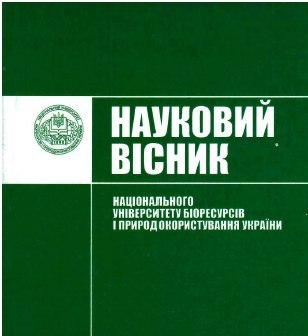To the problem of translation of english transportation terminology into ukrainian
DOI:
https://doi.org/10.31548/philolog0(276).2017.047%20-%2053Abstract
Technical translation is the type of translation dealing with scientific and technical subjects and using the specialized terminology of the scientific or technical field involved that forms the vital part of the translating process. Dealing with terminology in specialised translation is quite a challenging task and may require much effort and creativity on the translator’s side, the right choice of translation strategies and procedures. Transportation technology is a quickly developing field due to the age of globalization; as a result, the need for coining new technical terms is becoming difficult to ignore. The present study explores the strategies underlying the appropriate translation of transportation terms from English into Ukrainian. For this purpose, a corpus of 140 English transportation terms was randomly extracted from the two transportation websites and was compared with their Ukrainian equivalents. By comparing and contrasting the frequencies of the strategies used, it was revealed that the most frequently used translation procedure is calque (38%). Literal translation was the second most frequent procedure (26%), followed by borrowing procedure (15%). Equivalence and transposition were utilized the least, 13% and 8% respectively, for rendering the transportation terminology.
References
Baker, M. (1992). In other words: A course book on translation. London: Routledge.
Bowker, L. (2002). Working with specialized language: A practical guide to using corpora. London: Routledge.
Byrne, J. (2006). Technical translation: Usability strategies for translating technical documentation. Dordrecht: Springer.
Dart Aircompany Ltd. Rules of passengers and luggage air transportation. Available at: http://aerodart.com.ua/en/rules-of-passengers-and-luggage-air- transportation/
DHL Global. Available at: http://www.dhl.com.ua/uk.html
Munday, J. (2012). Introducing Translation Studies, Theories and Applications. London, New York: Routledge.
Newmark, P. (1988). A textbook of translation. London: Prentice Hall Press, 1988.
Scheiber, M. (1993). Übersetzung und Bearbeitung. Zur Differenzierung und Abgrenzung des Übersetzungsbegriffs. Tübingen: Gunter Narr, 1993.
Sorina, Postolea. (2016). Translating in a Specialised Context: Challenges and Risks. Bulletin of the Polytechnic Institute of Iasi. Section: Social Sciences, LXII(LXVI), f.1, 51-66.
Kharchenko, S. V. (2009) Naukovo-tekhnichna terminolohiia [Scientific and technical terminoloy]. – Kyiv. 112
Downloads
Published
Issue
Section
License
Relationship between right holders and users shall be governed by the terms of the license Creative Commons Attribution – non-commercial – Distribution On Same Conditions 4.0 international (CC BY-NC-SA 4.0):https://creativecommons.org/licenses/by-nc-sa/4.0/deed.uk
Authors who publish with this journal agree to the following terms:
- Authors retain copyright and grant the journal right of first publication with the work simultaneously licensed under a Creative Commons Attribution License that allows others to share the work with an acknowledgement of the work's authorship and initial publication in this journal.
- Authors are able to enter into separate, additional contractual arrangements for the non-exclusive distribution of the journal's published version of the work (e.g., post it to an institutional repository or publish it in a book), with an acknowledgement of its initial publication in this journal.
- Authors are permitted and encouraged to post their work online (e.g., in institutional repositories or on their website) prior to and during the submission process, as it can lead to productive exchanges, as well as earlier and greater citation of published work (See The Effect of Open Access).

